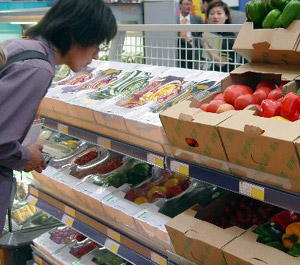| Home / Statistics | Tools: Save | Print | E-mail | Most Read |
| Farm Product Exports to Increase 12% This Year |
| Adjust font size: |
China's agricultural product exports are expected to grow about 12 percent to hit US$30 billion this year despite overseas technical barriers and cost increases, according to a senior official with the Ministry of Commerce. The remarks were made by Lu Jianhua, director of the ministry's department of foreign trade, who based his prediction on the fact that the country's agricultural product exports rose 12.7 percent year-on-year in the first 10 months to US$24.56 billion. Last year,
"Sustained and quick growth is not easy for the country as it sees stricter overseas technical barriers and cost increases," Lu said. According to statistics from the ministry, Affected by Farm product exports to the European Union and the Lu attributed the growth to the government's policies to promote farm product exports and moves to help exporters overcome overseas barriers. Some countries, in particular developed ones with advanced technology, intended to restrict Since In order to help more Chinese farm products tap overseas markets the ministry has set up a supervision regime to oversee export markets. Some policy banks provide farm product exporters services to address their financing difficulties, and industrial organizations organize training for farmers and export companies to help them overcome technical barriers abroad. Lu predicts the growth rate of Farm exporters and produce companies should prepare themselves for risks in developed countries, he said. For example, since Lu is optimistic about the prospects offered by some emerging markets, such as the Association of Southeast Asian Nations (ASEAN), the Middle East and "Farm product trade (between (
|
| Tools: Save | Print | E-mail | Most Read |
 |
| Related Stories |
